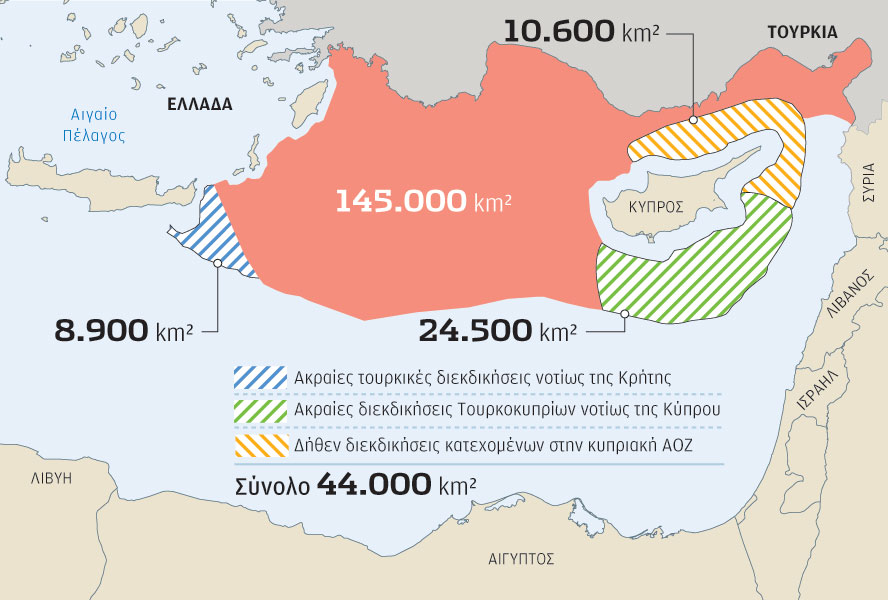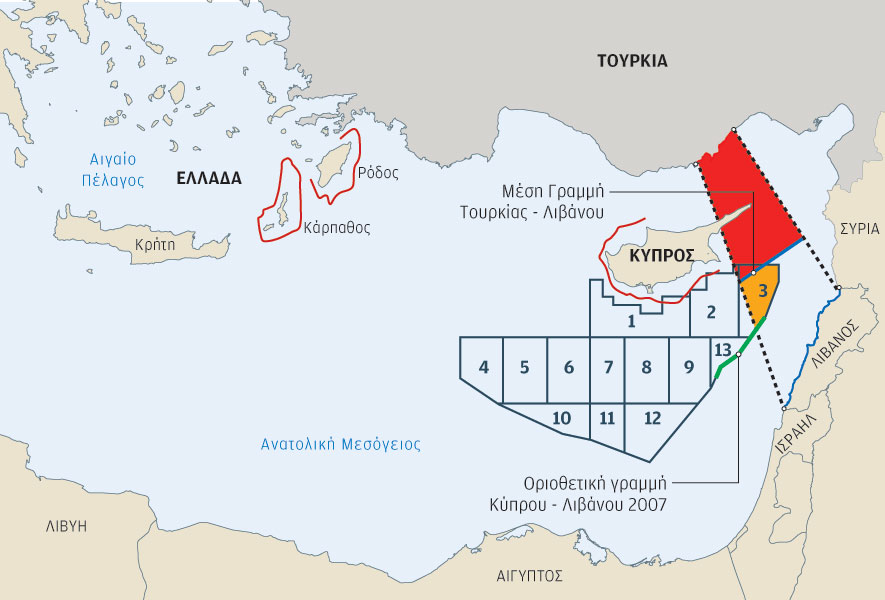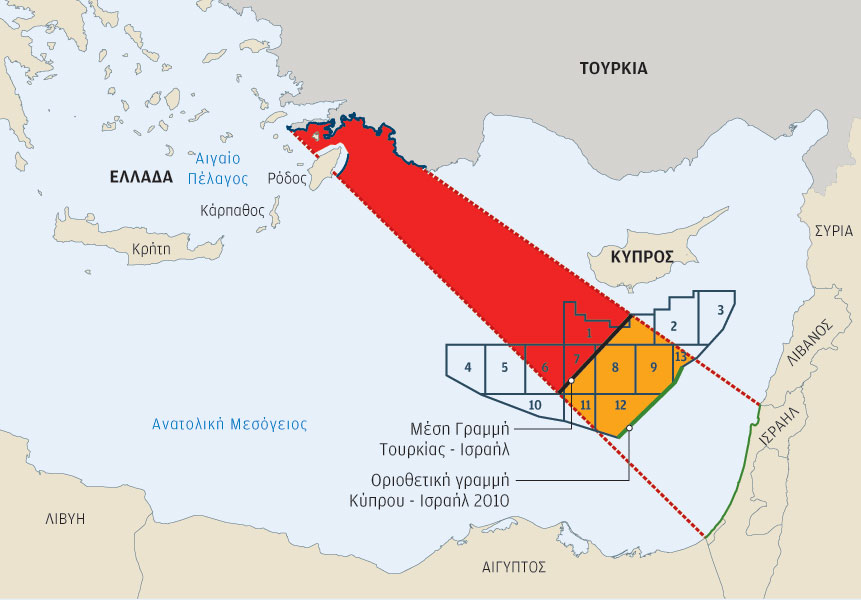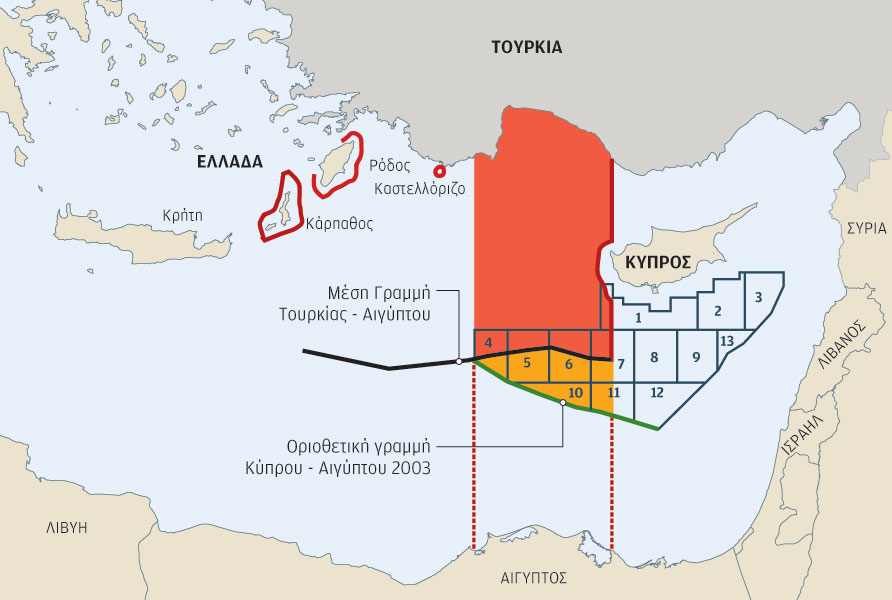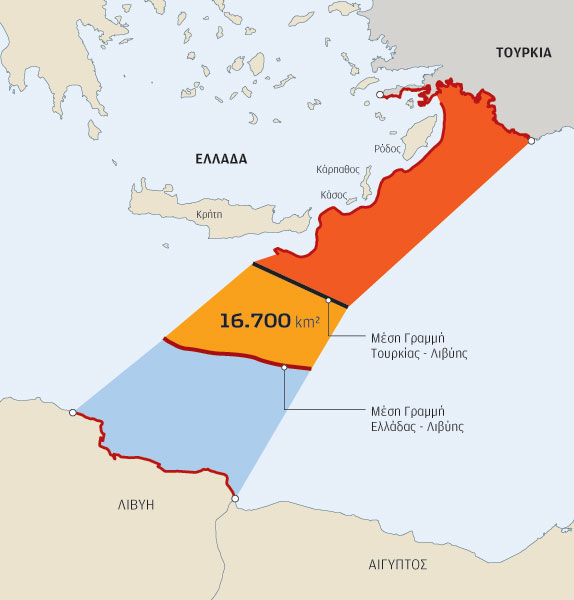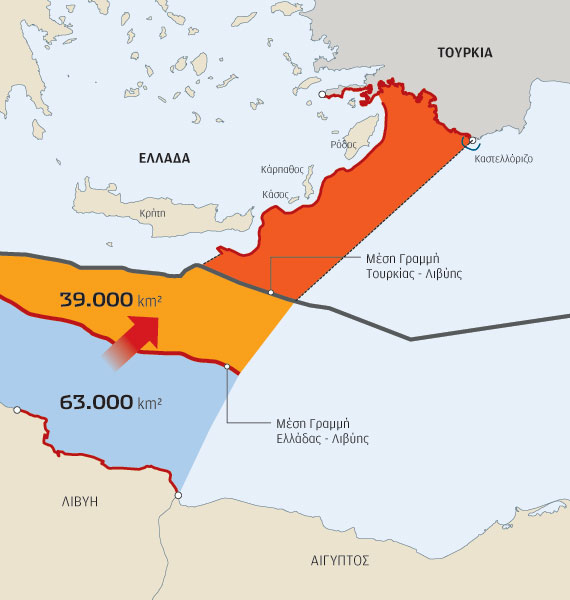Source: Ekathimerini
By Prof. Angelos Syrigos, Vassilis Nedos
With drilling under way in Cyprus’s exclusive economic zone, Kathimerini has seen seven maps outlining Turkey’s claims in the Eastern Mediterranean, revealing its intentions in the region.
The maps, which have been cited in recent weeks by Turkish Defense Minister Hulusi Akar, suggest that any others in the region considering the demarcation of maritime regions would have to consult with Turkey first.
However, the delineations on the maps only take into consideration Turkey and the mainlands of other countries facing its shores – ignoring the islands in between, such Rhodes, Karpathos and Crete, not to mention Cyprus.
The maps were created between 2010 and 2012, before Cyprus’s demarcation agreements with Egypt in 2003, Lebanon in 2007 and Israel in 2010.
These deals allowed Cyprus to delimit its exclusive economic zone in its southern and southeastern seas. Subsequently, it divided most of its maritime areas into 13 parts and proceeded with international tenders for their exploration and exploitation.
Considering these agreements legally void and therefore nonbinding, Ankara has claimed all the maritime regions west of Cyprus as part of the Turkish continental shelf. It only recognized Cyprus’s territorial waters.
Turkey’s interventions regarding the south and southeast of the island were ostensibly made on behalf of the Turkish Cypriots. However, rights to continental shelves and EEZs can only be exercised by states, not by groups within states, such as Turkish Cypriots.
According to analysts, Turkey’s effort must be seen in the context of the recently formed alliances in the region between Greece, Israel, Cyprus and Egypt, as well as Nicosia’s energy projects.
In addition, Turkey’s effort to enlist Libya in its quest to redraw maritime maps in the region appears to have fallen by the wayside.
Turkey’s insecurity in the region has also been fueled by Washington’s ambition – reported last week by Kathimerini – to establish a security organization in the Eastern Mediterranean and the Middle East based on the cooperation of countries like Greece, Cyprus, Israel and Jordan.
The potential creation of such an organization will be discussed during the strategic dialogue between Greece and the US in Washington on December 13, as well as the trilateral summits between Greece, Cyprus and Israel on December 19 and 20.
Washington’s interest in the role of Cyprus has been indicated by the frequent contacts it has had with Cyprus Foreign Minister Nikos Christodoulides.

